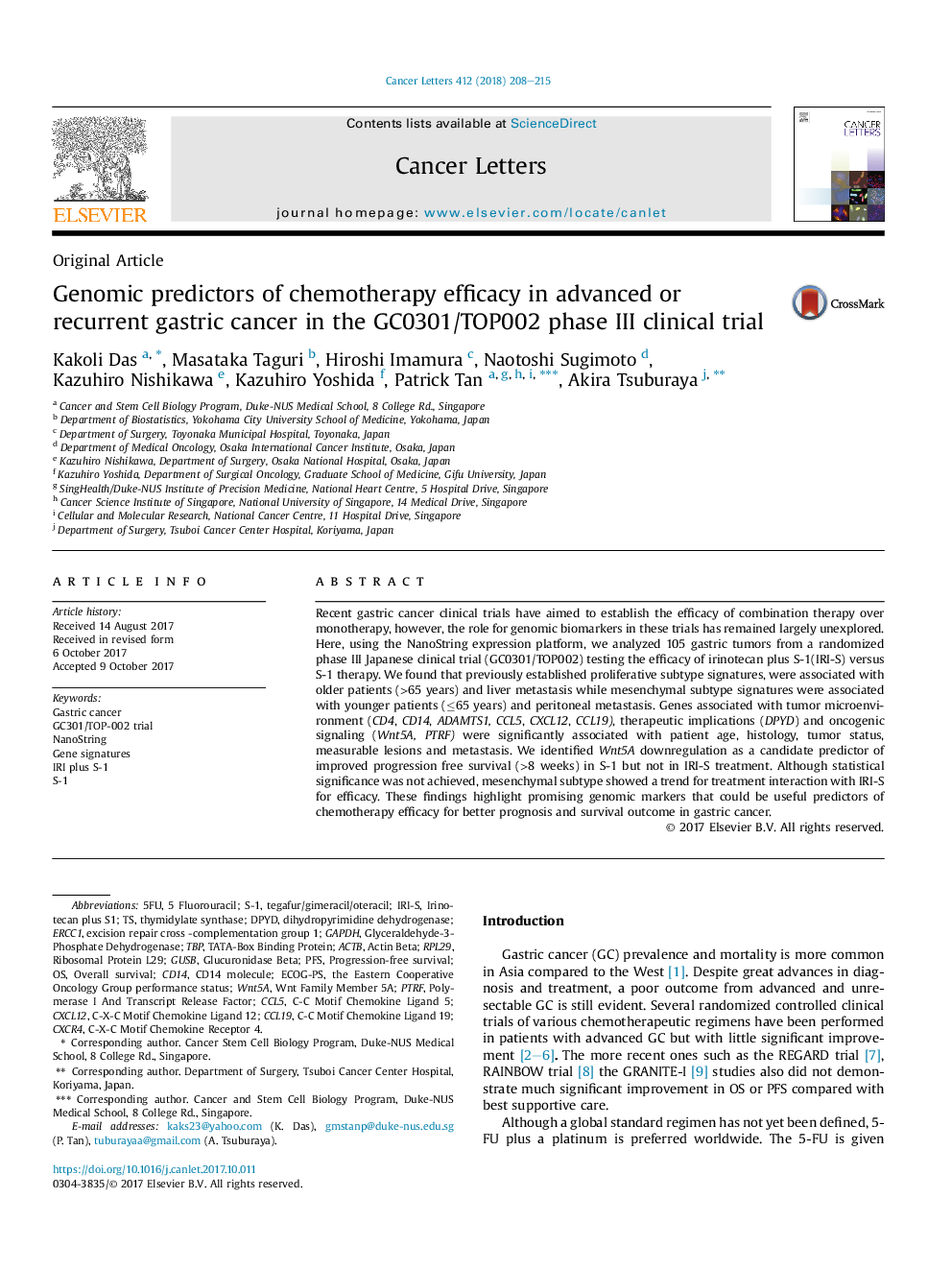| Article ID | Journal | Published Year | Pages | File Type |
|---|---|---|---|---|
| 8435118 | Cancer Letters | 2018 | 8 Pages |
Abstract
Recent gastric cancer clinical trials have aimed to establish the efficacy of combination therapy over monotherapy, however, the role for genomic biomarkers in these trials has remained largely unexplored. Here, using the NanoString expression platform, we analyzed 105 gastric tumors from a randomized phase III Japanese clinical trial (GC0301/TOP002) testing the efficacy of irinotecan plus S-1(IRI-S) versus S-1 therapy. We found that previously established proliferative subtype signatures, were associated with older patients (>65 years) and liver metastasis while mesenchymal subtype signatures were associated with younger patients (â¤65 years) and peritoneal metastasis. Genes associated with tumor microenvironment (CD4, CD14, ADAMTS1, CCL5, CXCL12, CCL19), therapeutic implications (DPYD) and oncogenic signaling (Wnt5A, PTRF) were significantly associated with patient age, histology, tumor status, measurable lesions and metastasis. We identified Wnt5A downregulation as a candidate predictor of improved progression free survival (>8 weeks) in S-1 but not in IRI-S treatment. Although statistical significance was not achieved, mesenchymal subtype showed a trend for treatment interaction with IRI-S for efficacy. These findings highlight promising genomic markers that could be useful predictors of chemotherapy efficacy for better prognosis and survival outcome in gastric cancer.
Related Topics
Life Sciences
Biochemistry, Genetics and Molecular Biology
Cancer Research
Authors
Kakoli Das, Masataka Taguri, Hiroshi Imamura, Naotoshi Sugimoto, Kazuhiro Nishikawa, Kazuhiro Yoshida, Patrick Tan, Akira Tsuburaya,
